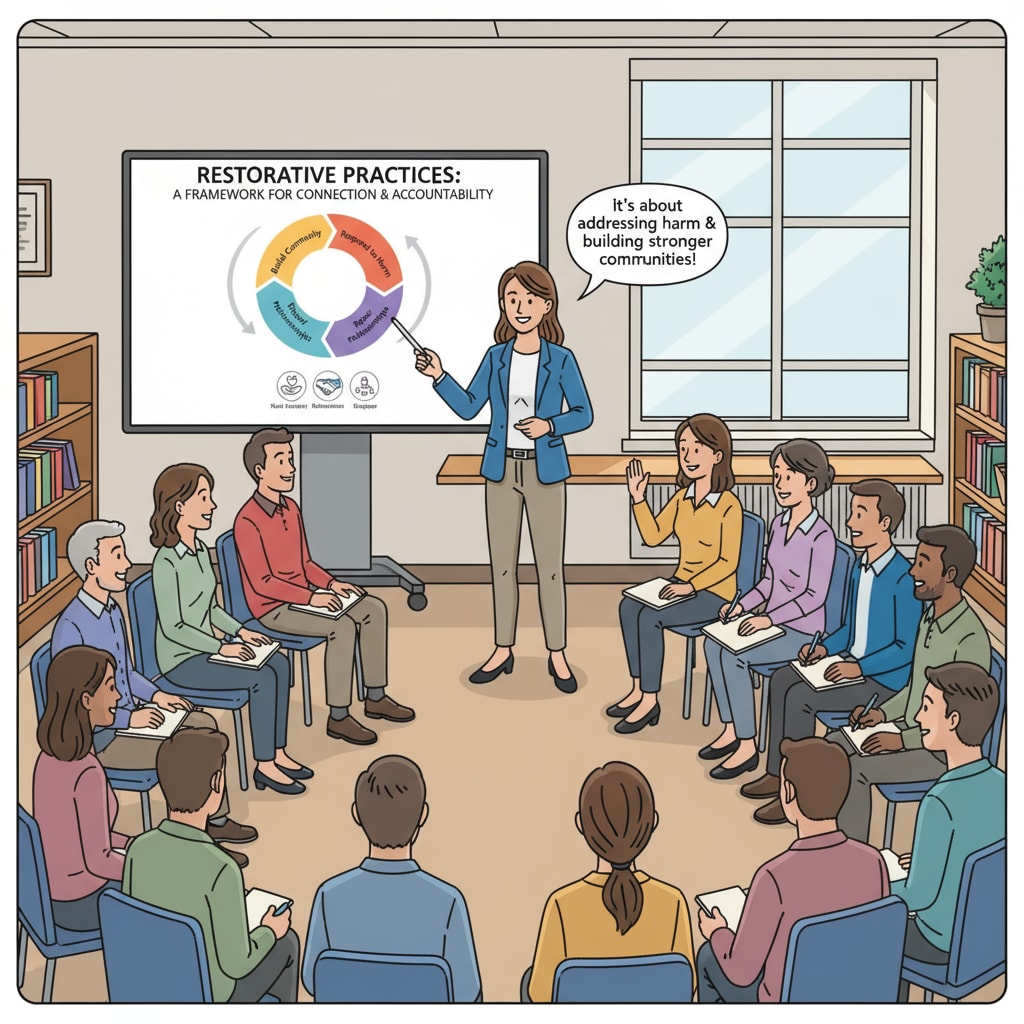In the realm of education, the intersection of school discipline policies, parental expectations, and restorative practices often presents complex challenges. School administrators frequently encounter situations where parents advocate for severe disciplinary measures, while the school adheres to a restorative approach. This article aims to shed light on these issues and propose effective solutions.

The Clash of Approaches
Parents, driven by their desire to see their children learn from their mistakes, may demand traditional disciplinary actions such as suspensions or expulsions. However, schools are increasingly adopting restorative practices, which focus on repairing harm, promoting understanding, and building relationships. This difference in approach can lead to tension and misunderstandings. For example, a parent might be frustrated when a school chooses a restorative conference over a suspension for their child’s misbehavior. According to American Psychological Association’s guidelines on school discipline, restorative practices have shown positive long-term effects on students’ social and emotional development, but this may not align with some parents’ immediate expectations.
Understanding the Root Causes
There are several reasons for this conflict. Firstly, parents may be influenced by their own educational experiences, where strict discipline was the norm. Secondly, they may be concerned about the safety and well-being of their children in school. Additionally, lack of awareness about the benefits of restorative practices can also contribute to the problem. As stated in a research study on parental attitudes towards school discipline, many parents are not fully informed about alternative disciplinary methods. Understanding these root causes is crucial for finding common ground.

To bridge the gap between parental expectations and school restorative practices, effective communication is essential. Schools should proactively engage with parents, providing clear information about the philosophy and goals of restorative practices. This can be done through parent-teacher meetings, workshops, and informational brochures. By building trust and understanding, schools can help parents see the value in these practices. For instance, sharing success stories of students who have benefited from restorative interventions can be persuasive.
Readability guidance: We have used short paragraphs to present the key points clearly. The lists and examples help to break down complex ideas. Transition words like ‘however’, ‘firstly’,’secondly’, and ‘additionally’ are used to make the flow smooth. Each H2 section provides a distinct focus on different aspects of the issue.


